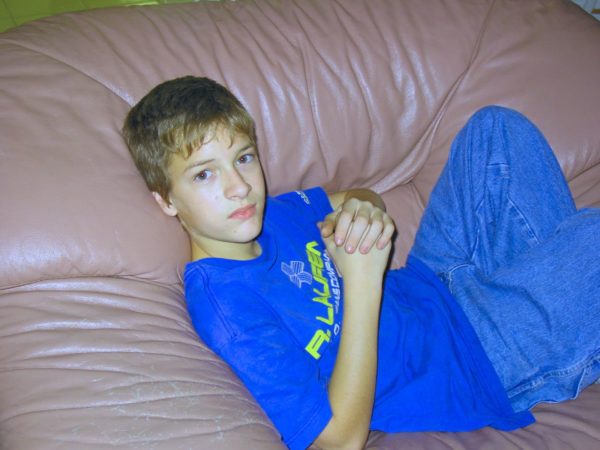I don’t know of anyone who hasn’t struggled with judgment. Judgment of others, of circumstances, of themselves and of life, in general. That’s why I feel this post is so important. It’s certainly dear to my heart because I’ve been under a microscope since I was a child. Now I struggle with being the one scrutinizing myself under that scope.
Me: Why do we judge, compare and label, and what can we do to stop it?
Erik: You stop it by taping your mouth closed.
Me: Good one.
Erik: It’s hard not to do it because this is how we’re taught to describe. I’ve talked about it before. Human beings are very good at measuring. That’s what they’re made to do. They measure their experiences; they measure themselves by their career. They use definitions to measure themselves; they use labels to define themselves. Honestly, this is living the logical life driven by the brain. If we just took the key out of the brain and plugged it back into our heart and became emotional beings, we wouldn’t need all this measurement shit because what we’d be using is our intuition. If you would lead your life by intuition, by heartfelt, gut felt, body felt, however “felt up” you want to be.
Jamie and I burst out laughing.
Jamie: I was just trusting that he wouldn’t do that, so I rolled with it.
Me: I know! It just came out of your mouth, and you didn’t realize what was going to happen, huh?
Jamie: He’s good!
Erik: Okay, so if you’re led by how you feel, then you don’t have the desire to start defining it with words.
Jamie looks from one side of the room to the other.
Jamie: He’s pacing.
Me: He always used to pace around my kitchen island, arms crossed. Is he crossing his arms?
Jamie (laughing): Yeah, yeah! He is!
Me: Uh huh!
Jamie: That’s funny. Okay. Continue, Erik.
Erik: Once you’re used to leading yourself by how you feel and you’re not so associated to the words, the definitions, the judgments, the labels no longer work for you. You rely on what your emotional reaction is, and that’s what gives you direction; that’s what gives you the drive to connect, to move forward, to make a change not so much by looking at the words and measuring than to see if it was good enough, bad enough, if it needed to change, if you wanted to change.
Me: That’s your logical brain getting in the way.
Erik: Yeah, but this is a taught behavior. Instinctively, we want to react emotionally. We’re emotional beings. So you’re asking how do you stop that shit? You have to unlearn it.
(Pause)
Jamie (smiling): I asked him in my head, ‘Well, how do you unlearn?’
Me: Yeah!
Erik: Well, you have to forget.
Lucky for me, forgetting stuff is my forte. It’s hell gettin’ old.
Erik: This is the first time—
Jamie (laughing): He’s using his hands and saying, “This is the first time I’m telling you that forgetting is a good thing.”
Me: Well, that’s not easy [for most people] either.
Erik: It’s discipline. Mom; it’s a discipline. You have to pay attention to every moment, every choice that you’re making in every moment and decide not to do it logically but to do it emotionally.
Jamie: He makes some weird sound. “Cha ching.” Something.
Me: Okay.
Jamie (with a look of surprise): Oh, that’s the bell! Ding! That means he’s done with his thing.
Me: Oh yeah. The signal. Everybody, that’s his signal to go on to the next question, so here we go! What’s the difference between observation and evaluation? Also, tell me about judgment. You’ve discussed this before. I just want you to tell it to everyone who hasn’t heard it.
Jamie looks up at Erik.
Erik: Observation and evaluation. No matter how you want to talk about that, both of them are participating.
(Pause)
Jamie follows Erik around the room with her eyes.
Jamie (wrinkling up her nose): I guess we’re going to pause.
Jamie and I discuss hair during this little intermission. She tried to fix one side of her hair but had trouble because she was looking at her mirror image.
Me: I avoid mirrors at all costs. Problem solved.
Jamie: It’s like rubbing your stomach and patting your head.
Erik: Okay. Ask your questions again. Let’s do it, Mom.
Me: What’s the difference between evaluation and observation, Erik, and also in that, tell me a little bit about judgment overall.
Erik: Observation and evaluation, no matter which you’re choosing, [you participate.] Observation shouldn’t be seen as passive, and—
Jamie: Evaluation? That was the other one, correct?
Me: Yes.
Erik: Jamie, get your head in it! And [you can’t see] evaluation as being active. They’re both participating elements. In both, you’re participating.
Can we just get on with it, Erik? He must think we’re a little slow.
Erik: And when you participate, you put your energy into the situation. Okay, just remember that because if your energy is in the situation, then —
Jamie (smiling and wiggling uncomfortably in her chair): Here comes the cussing!
Erik: —you’re fucking with the equation.
Jamie (to Erik): What do you mean, “the equation”?
(Pause as Jamie listens, eyes closed.)
Jamie (to Erik): Great picture in my head, but that’s not going to help people. Describe it.
Erik: Okay. When you participate in any situation, you change the outcome. You create a different element of the equation, so there’s nothing in your life that’s considered impossible. I just want you to understand that. If you’re choosing to step back and observe, your observation is inserting an energetic quality into the circumstance that will change what that outcome will be of that circumstance because you’re observing, and you’re interacting that way.
Me: It’s almost like a chemical equation.
Erik: Yes! Yes! Yeah!
Jamie (chuckling): He’s walking around.
Erik: The evaluation part, that’s more of a heady, logical interaction with something. It’s what you can make. That’s great. You can sit down and pro and con all you want, positive/negative, right/wrong, black/white, but it makes no fucking sense when it comes down to the core of your decision because what your actual truth is to your physical, emotional, spiritual and mental body is going to be the emotional reaction.
Jamie: He’s got his hand upon his chest.
Erik: It’s the emotion reaction. You gotta know how you feel so you can pro and con all you want, but your final decision should be based on what’s going to allow you to feel your best. What’s going to allow you to feel joy, happiness, love—because this is the purpose of living. The purpose of living is not sitting around and evaluating everything and giving titles and names and descriptions because, once you starting doing that shit, you’re stripping the natural firsthand experience that you’ve already had by trying to put it in some tiny ass box—
Jamie (smiling): That’s a funny visual in my head.
Erik: A tiny ass box to describe it and then hand it to someone, but nobody is going to understand exactly what you went through because all you’re doing is describing it visually or evaluating it from your observation. I don’t know how you’re slamming judgments into this because judgment seems to show up everywhere, Mom. So, what’s your point? What are you trying to get to?
Me: Well, evaluation is judgment. What about observation? Is there any purpose or benefit for observation, and it that a form of judgments, too? I can’t imagine it would be.
Erik: No, observation is not a form of judgment. Now, we’re not discussing the inner thoughts that are going through your head, because that’s a hell of a lot of judgment.
Me: Oh, yeah.
Erik: We even judge ourselves.
Me: Absolutely. We observe ourselves.
Erik: Yeah, but when you’re observing, you’re still participating, energetically, but you’re—
(Pause)
Jamie: He’s having problem finding the best word he can use right now.
Erik: –collecting information.
Me: Uh huh.
(Pause)
Jamie: He’s going to make me nauseous. I’m trying to tell him to just sit down.
Me: Put him in his place!
Erik: You can still learn and experience your observations, but I don’t just want to talk about observations because there are so many times when we need to interact and not just observe. I wish there was a way we could describe that inner reaction that you have that makes you want to stand up and do something. Let’s talk about all these sweet things that you think about or that you’re attracted to doing but didn’t follow through with. Like say you see someone who’d having a hard time, and you just wish you could go over and hug ‘em, or you hear about your friend who’s going through a hard time, and you think about, “God, wouldn’t it be neat if I could just send them flowers?” And you don’t follow through with that because these simple emotions that are kind of followed by a series of thoughts of, “Oh, this is the description of the action I should be doing,” but you don’t because you jut get busy. I would love for people to tune in to that kind of observation of self in describing and knowing that they should follow: the description that’s coming from their body, from their heart, like if you have that pull, that instinct to pick up the phone and call someone even if you just have three minutes, and you say, “I really want to talk to you for an hour, but all I have is three minutes, and I just want you to know that I’m thinking about you.” If we all followed that kind of instinctiveness—
Jamie (chuckling): I don’t know if that was a word! (To Erik) I don’t know what you just said. (To me) Something about the—his arms are going up in the air—something about the whole world getting on the same line of communication, and—
(Pause)
Erik: Jamie, tell them that it’s going to get better. It’ll be better, so if we all pay attention to that—
Jamie (to Erik): What do you want to call it, Erik?
(Pause)
Erik: Instinctiveness.
I think we’re making up a ton of new words here.
Erik: If we’d just follow with what we’re pulled to do—
Me: Our emotions, right? We’re emotional beings. That’s what you’re saying. We need to follow our hearts, our feelings.
Erik: That’s such the fucking truth.
Jamie: He’s shouting.
Erik: But what is it that, when we start talking about this, half the population rolls over and starts to laugh and thinks that this is just crazy ca ca.
Jamie (laughing and pointing at Erik): I’ve never heard you say, “crazy ca ca”!
Me (laughing): That’s a new one to add to our list! A very long list.
Erik: Why is that? It makes me want to stop presenting it that way and make it sound more scientific, but, really, the point is that this is how you work best, and this is how you should be grooming or pushing or maintaining yourself to be on a daily basis. It just blows my mind that people would be listening to this and laugh. Giggle.
Me: They think it’s weak [to feel].
Jamie (chuckling): Under his breath he goes, “Babies.”
Me (laughing): Anything else on that topic?
Erik: Ding!



